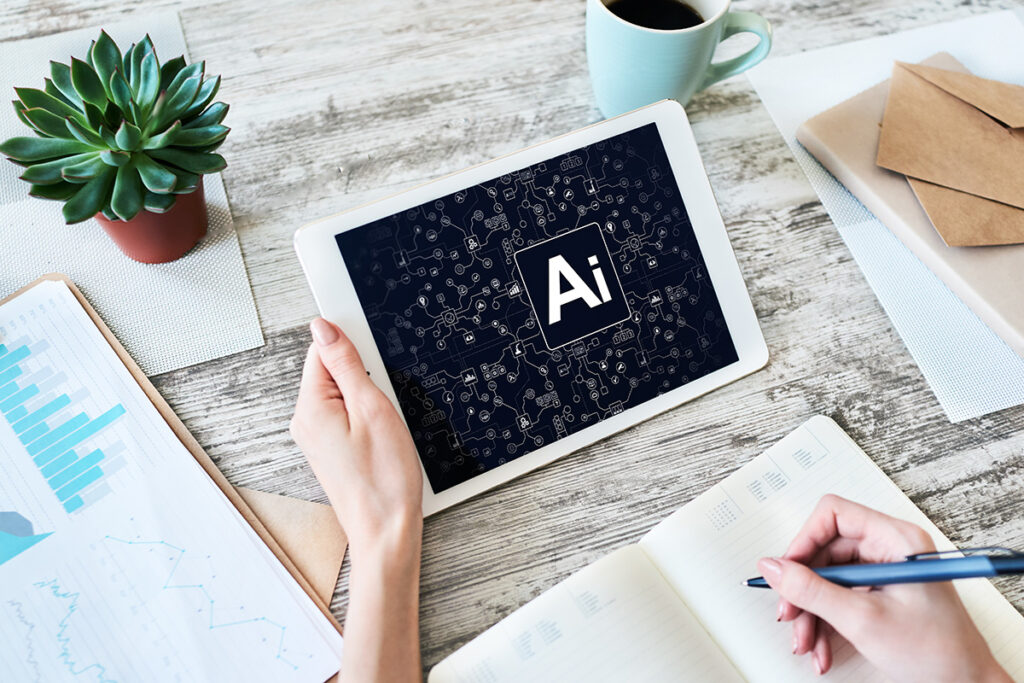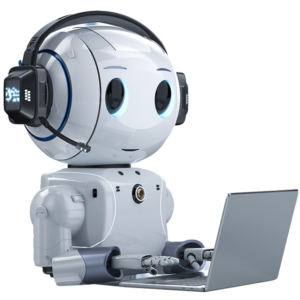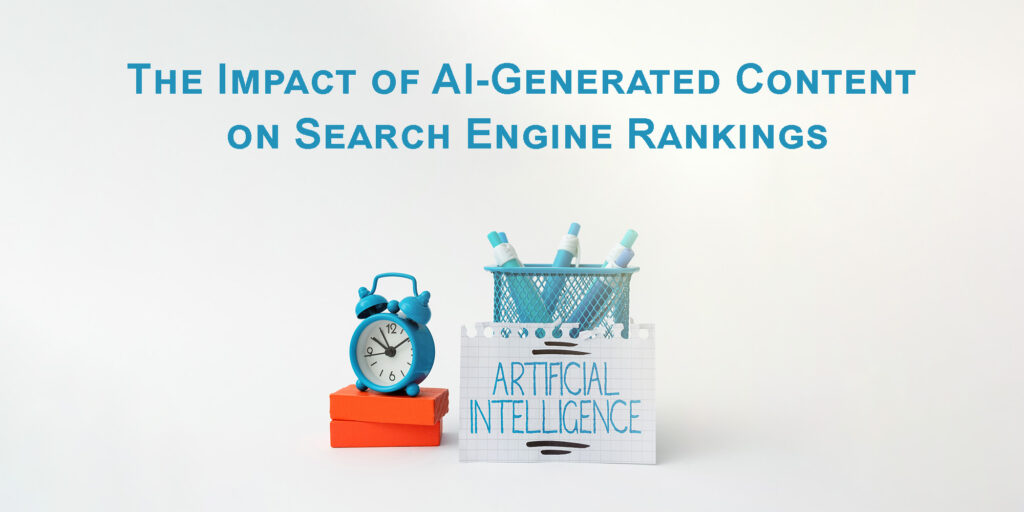In the ever-evolving digital landscape, content remains a critical factor in determining the success of websites. As Artificial Intelligence (AI) technology advances, AI-generated content has become increasingly common. This development has led to significant discussions around its implications for search engine optimization (SEO) and whether search engines, like Google, might downgrade website rankings if they detect that content was created predominantly by AI. In this article, we will explore the impact of AI-generated content on search engine rankings, the potential challenges it poses, and how search engines can detect AI-generated content.
1. Understanding AI-Generated Content
AI-generated content refers to text, images, or other media created by machine learning models. These models, such as OpenAI’s GPT-4, use vast amounts of data to produce content that closely resembles human writing. AI-generated content can range from simple tasks like generating social media posts to more complex activities like writing detailed articles or even creating code.
The appeal of AI-generated content lies in its efficiency. Businesses can produce large volumes of content quickly and at a lower cost compared to human writers. However, this convenience comes with certain risks, particularly in the context of SEO.
2. The Role of Content Quality in Search Engine Rankings
Search engines, particularly Google, prioritize content that is high-quality, relevant, and provides value to users. This focus on quality is driven by Google’s mission to organize the world’s information and make it universally accessible and useful. The content on a website plays a crucial role in determining its ranking in search engine results pages (SERPs).
To assess content quality, Google employs various algorithms and guidelines, with one of the most important being the E-E-A-T principle—Expertise, Authoritativeness, and Trustworthiness. Content that demonstrates these qualities is more likely to rank higher in search results.
3. How AI-Generated Content Affects SEO
The impact of AI-generated content on SEO depends largely on its quality and how it is used. Here are some key considerations:
3.1 Content Quality Of AI-Generated Content
If AI-generated content is high-quality, original, and relevant to the user’s query, it can rank well. However, if the content is repetitive, lacks depth, or appears spammy, it is likely to be penalized by search engines. Quality remains the paramount factor in SEO, regardless of whether content is created by AI or humans.
3.2 Intent
Google’s guidelines do not explicitly prohibit the use of AI-generated content. However, the intent behind the content is critical. Content created with the intent to manipulate search rankings or deceive users—such as mass-produced low-quality content or clickbait—is likely to be penalized. On the other hand, content created to genuinely inform or help users, even if AI-generated, is less likely to face penalties.
3.3 E-E-A-T Factors
AI-generated content may struggle to demonstrate Expertise, Authoritativeness, and Trustworthiness, especially if it lacks human oversight. For instance, AI may produce content that is factually incorrect or lacks the nuanced understanding that a subject matter expert would provide. This can negatively impact a website’s rankings.
3.4 User Experience
Google increasingly focuses on user experience (UX) as a ranking factor. Poorly crafted AI-generated content can lead to a negative UX, such as increased bounce rates or lower time spent on the page, which can hurt rankings. Conversely, well-written AI content that enhances UX can contribute positively to SEO.
4. How Search Engines Detect AI-Generated Content
Search engines use sophisticated methods to detect AI-generated content. While they may not always identify AI-generated content with absolute certainty, several techniques can indicate that content was created by AI:
4.1 Pattern Recognition Of AI-Generated Content
AI-generated content often exhibits certain patterns or structures that are not typical of human writing. For example, AI may use repetitive phrasing, similar sentence structures, or overly formal language. Search engines can detect these patterns using machine learning algorithms designed to recognize the subtle differences between human and AI-generated text.
4.2 Natural Language Processing (NLP) Models
Search engines use advanced NLP models to analyze content. These models can assess the coherence, grammar, and style of the content. While AI-generated content has become increasingly sophisticated, NLP models can still identify anomalies or unnatural patterns that suggest AI involvement.
4.3 Fact-Checking and Contextual Analysis
AI-generated content may lack the ability to accurately contextualize information or provide nuanced insights. Search engines can cross-reference facts and analyze the context in which information is presented to determine its accuracy. If content contains factual errors or lacks context, it may be flagged as AI-generated.
4.4 Content Consistency and Uniqueness
AI-generated content may be less consistent or unique compared to human-created content. Search engines use algorithms to check for content duplication, inconsistencies, and redundancy. If the content is found to be too similar to existing content or lacks originality, it may be penalized.
4.5 Authorship Signals
Search engines can use authorship signals to assess the credibility of content. Websites that regularly publish AI-generated content without clear attribution to a credible author may be viewed as less trustworthy. Conversely, content with clear authorship, especially by recognized experts, is likely to perform better in search rankings.
4.6 User Engagement Metrics
Search engines monitor how users interact with content. Metrics such as bounce rate, time on page, and click-through rate can indicate the quality of the content. Poorly performing content, whether AI-generated or not, can result in lower rankings. If AI-generated content leads to poor user engagement, it may be penalized.
4.7 Manual Review
In some cases, search engines may employ human reviewers to assess content quality. These reviewers can detect nuances that AI might miss, such as the tone, intention, or factual accuracy of the content. If content is flagged during a manual review, it could be downgraded.
5. The Future of AI-Generated Content and SEO
As AI technology continues to evolve, the line between human and AI-generated content will likely blur further. For businesses, this presents both opportunities and challenges. On the one hand, AI-generated content can be a valuable tool for scaling content production and improving efficiency. On the other hand, businesses must be mindful of maintaining content quality and adhering to SEO best practices to avoid penalties.
To future-proof their SEO strategies, businesses should consider the following:
5.1 Human Oversight Of AI-Generated Content
AI-generated content should be reviewed and edited by humans to ensure it meets quality standards. This includes checking for accuracy, contextual relevance, and adherence to brand voice.
5.2 Focus on E-E-A-T
Prioritize content that demonstrates expertise, authoritativeness, and trustworthiness. This may involve collaborating with subject matter experts or including clear authorship and citations in AI-generated content.
5.3 Diversify Content Types
Relying solely on AI-generated content can be risky. A balanced content strategy that includes human-created content, multimedia, and user-generated content can enhance SEO performance.
5.4 Monitor User Engagement
Regularly monitor user engagement metrics to identify any issues with AI-generated content. If engagement drops, it may be necessary to revise or replace the content.
5.5 Stay Informed on SEO Trends
SEO is a dynamic field, and search engine algorithms are constantly evolving. Staying informed about the latest trends and updates can help businesses adapt their content strategies accordingly.
6. Brief Summary Of AI-Generated Content

AI-generated content is a powerful tool that can revolutionize content creation. However, its impact on search engine rankings depends largely on how it is used. While AI-generated content that is high-quality, relevant, and user-focused can perform well in search rankings, content that is low-quality or designed to manipulate rankings is likely to be penalized. Search engines use a variety of techniques to detect AI-generated content, including pattern recognition, NLP models, and user engagement metrics. As AI technology continues to advance, businesses must remain vigilant in maintaining content quality and adhering to SEO best practices to ensure their content remains competitive in the ever-changing digital landscape.
Bel Oak Marketing team brings extensive experience in crafting AI-generated content, ensuring it stands out with a unique touch. Leveraging advanced AI tools, they create content that is not only high-quality but also tailored to resonate with specific audiences. Their expertise lies in blending AI efficiency with human creativity, producing content that is original, engaging, and optimized for search engines. By focusing on uniqueness and relevance, Bel Oak Marketing ensures that AI-generated content aligns with brand voice and meets the highest standards of excellence.





